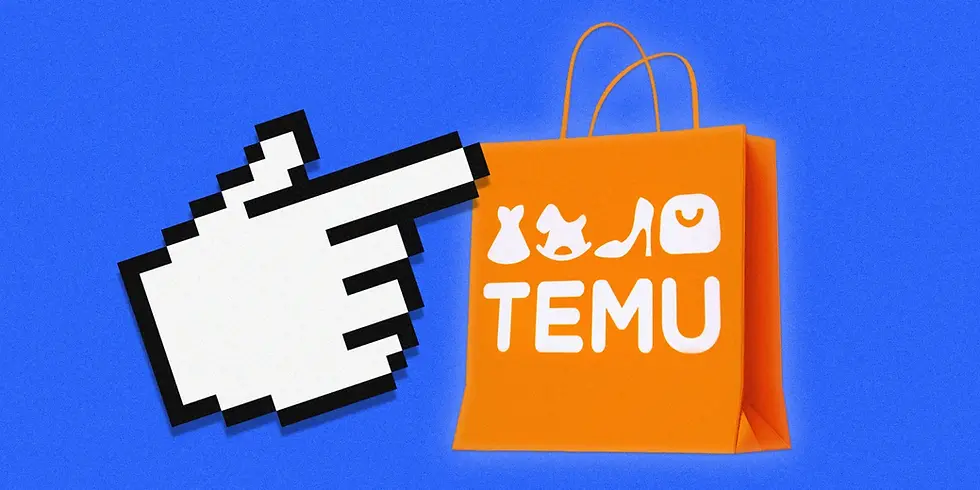[Marketing Guru Video Series] 3 elements to build your brand positioning
- ClickInsights

- Jun 3, 2020
- 3 min read
Updated: Aug 31, 2020
Content marketing is one of the most important aspect to establishing brands. How do we build our brand positioning and develop our brand identity?
Elizabeth Taylor, Senior Trainer at ClickAcademy Asia, shares 3 tips that you can use to build your brand positioning.
Highlights:
1. Brand personality
The reason we look at brand personality is to have a kind of human characteristics that our customers can identify with when they are engaging with our brand. It is much easier for consumers to engage with the brand if they feel that they can identify with some of the characteristics that the brand has. There are many different models to look out for, but the one that we focus on in the course is the Aaker Framework. For this model, there are 5 different brand personalities: Sincerity, Excitement, Competence, Sophistication, and Ruggedness. All these give us a framework to use for our brand to decide where we fit into and how we can use that to mold our content marketing.

Source: Google
For example, Volvo or Google might go along the lines of Competence and their content marketing which reflects this. Google reinforces Competence by showcasing their technology as reliable and intelligent through Google Search and Maps that allow healthcare and other essential workers to find hotels during the pandemic.

Source: Timberland
Whereas, brands such as Harley David or Timberland might focus on Ruggedness. Timberland is known to promote its products as durable, mostly outdoor advertisements to portray the tough and good looking image brought about by the models. Hence, this means that we can use this framework to refine our content marketing strategy.
2. Brand voice
To communicate our brand personality, we have to look at things such as our tone of voice and language to communicate well to our customers.

Source: Lush Singapore
For example, brands such as Lush or Wholefoods display their personality as friendly and inspiring. Lush Singapore donated its products as a way to show their support and appreciation to Singapore General Hospital, Mount Elizabeth Hospital, and Sengkang General Hospital during these unprecedented times.

Source: Dove
Another example of brand personality will be something more uplifting and thought-provoking. Dove presents itself as empowering and inspiring. Dove’s campaigns #GirlCollective powered by the Dove Self-Esteem Project seeks to establish body confidence and challenges beauty stereotypes for all women and girls by producing and publishing tips and advice, self-esteem resources, and empowering guest moderators to empower females.
Thus, the tone of your voice and your brand voice helps to communicate what our brand personality is.
3. Brand identity system
This a way that we can bring together many different visual elements to build up our brand and convey the brand personality and the brand voice. These would be something normally seen in a brand style guide that would include your main logo, secondary logo, and the colours that you are using. We usually recommend between 4 to 6 different colours from your brand and your typography. An example of your tone of voice and the way you would speak to our customers, it might have a graphic library of images that you could use and also any videos that you want to add in as well.
Netflix has a brand style guide which is about 68 pages long. In it, it details all of the different aspects of their brand identity and how they want their content to be consistently communicated to their audience. This really helps when you are working with multiple third parties but also just within your organisation. To really solidify what your brand positioning is when you are developing your content marketing strategy.
Get hands-on guided training on Content Marketing at ClickAcademy Asia's Content Marketing for Web, Mobile & Social Media. The 2-day course covers world-class frameworks, templates and case studies on content marketing strategies. Find out more here. The course is accredited by Skillsfuture Singapore and is Skillsfuture credit-claimable.
If you are experienced in content marketing and would like to align your current content with your brand positioning using a content marketing audit, as well as build a business case for content marketing, check out our Advanced Content Marketing Masterclass.



google 优化 seo技术+jingcheng-seo.com+秒收录;
Fortune Tiger Fortune Tiger;
Fortune Tiger Fortune Tiger;
Fortune Tiger Fortune Tiger;
Fortune Tiger Slots Fortune…
站群/ 站群
gamesimes gamesimes;
03topgame 03topgame
EPS Machine EPS Cutting…
EPS Machine EPS and…
EPP Machine EPP Shape…
Fortune Tiger Fortune Tiger;
EPS Machine EPS and…
betwin betwin;
777 777;
slots slots;
Fortune Tiger Fortune Tiger;
Fortune Tiger Fortune Tiger;
Fortune Tiger Fortune Tiger;
Fortune Tiger Fortune Tiger;
Fortune Tiger Fortune Tiger;
Fortune Tiger Fortune Tiger;
Fortune Tiger Fortune Tiger;
Fortune Tiger Fortune Tiger;
Fortune Tiger Fortune Tiger;
Fortune Tiger Fortune Tiger;
Fortune Tiger Fortune Tiger;
Fortune Tiger Slots Fortune Tiger Slots;
Fortune Tiger Slots Fortune Tiger Slots;
Fortune Tiger Slots Fortune Tiger Slots;